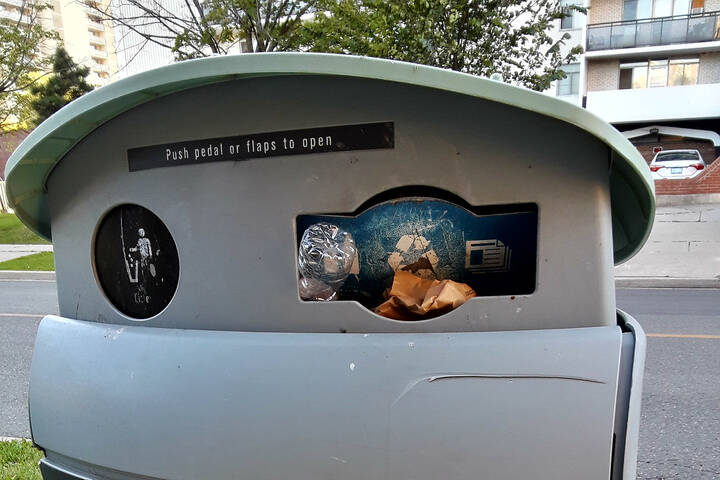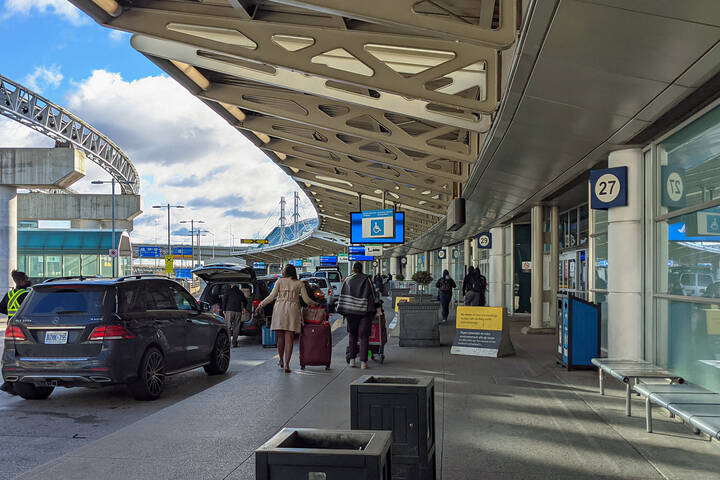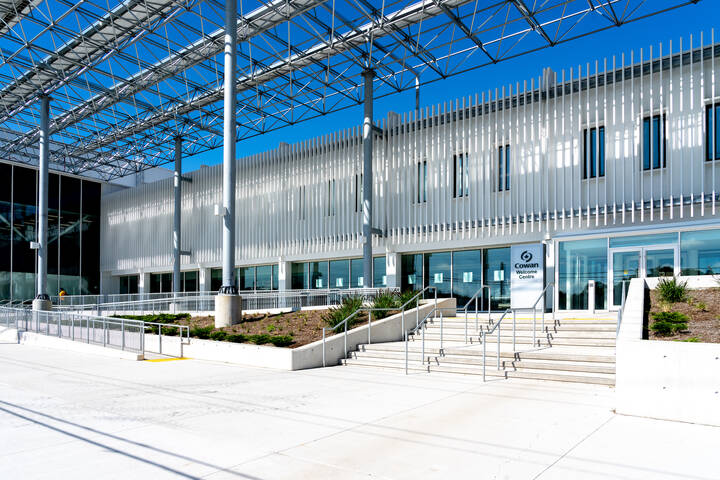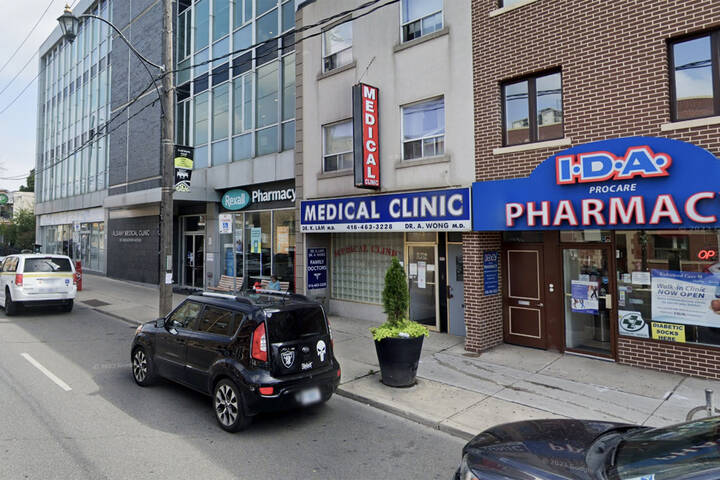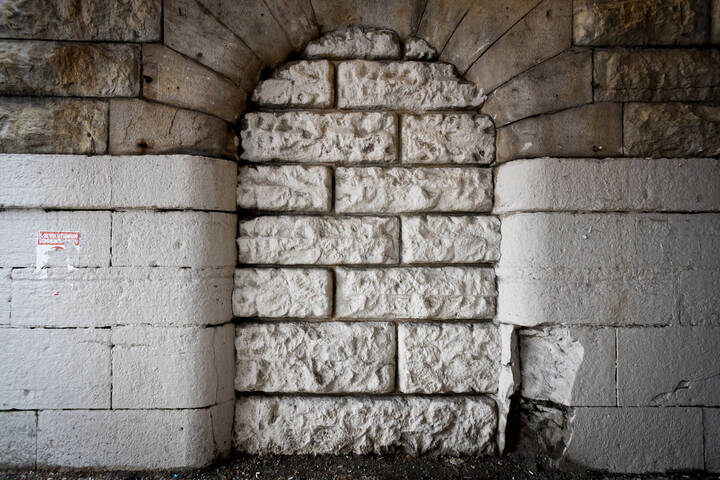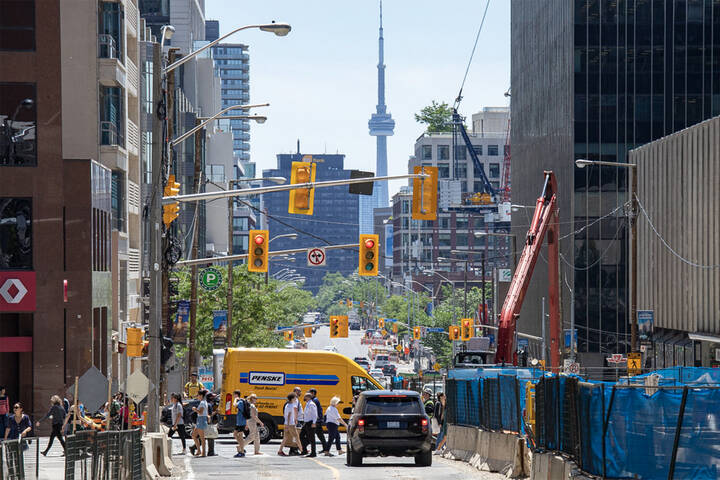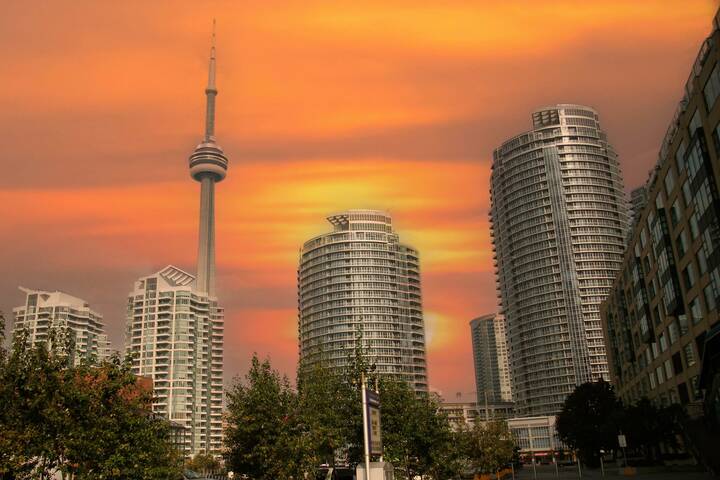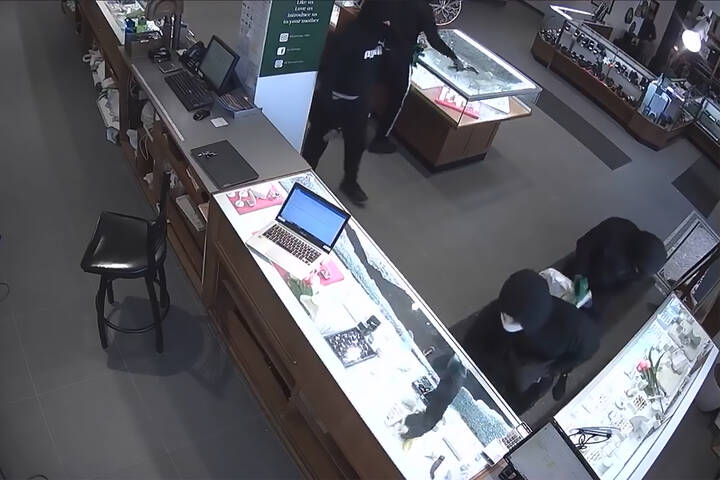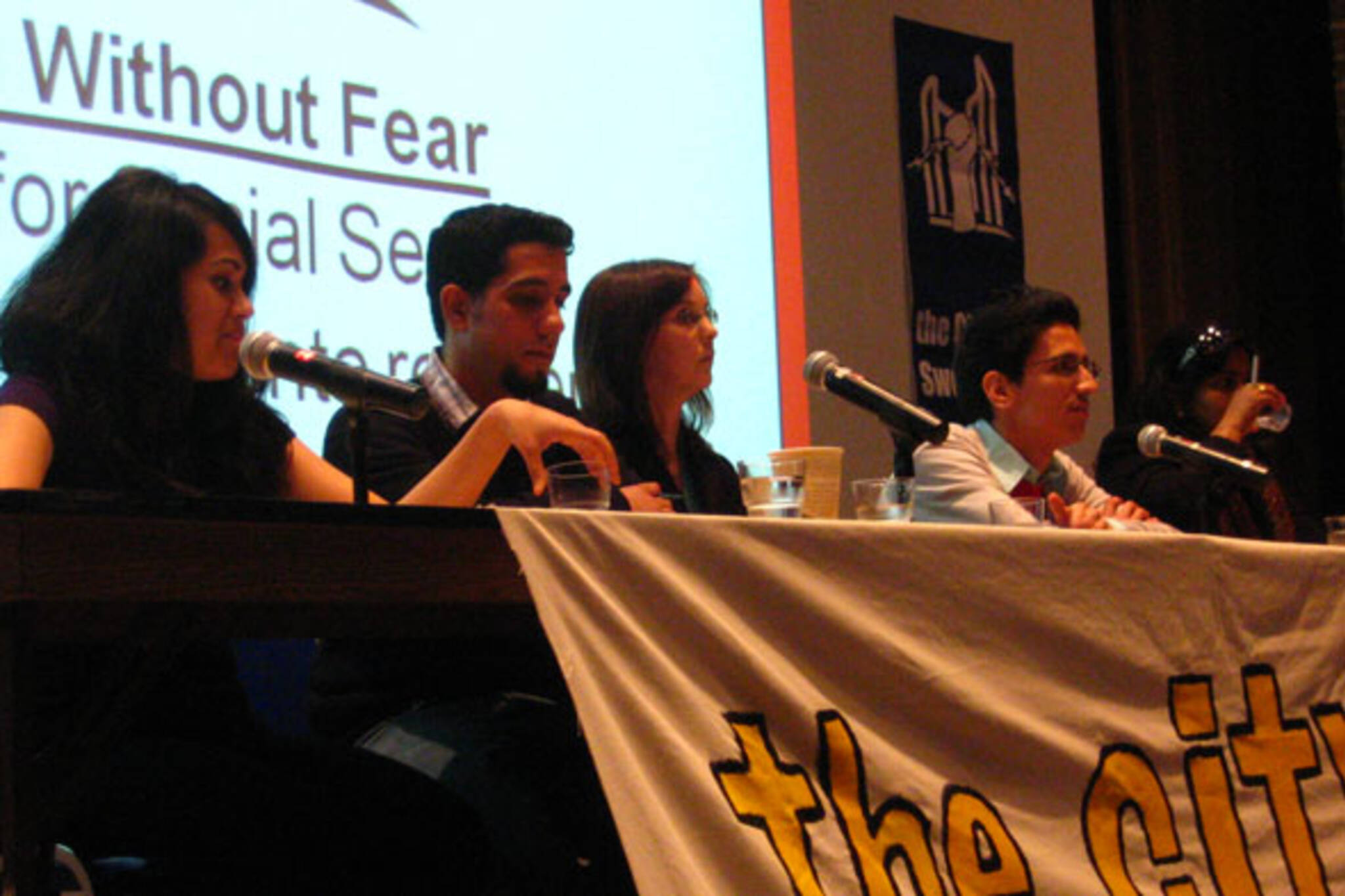
A Sanctuary, not a Sweatshop for the Undocumented
Advocates say an estimated 200,000 undocumented immigrants in Toronto fill labour gaps in key industries and pay into the system through property taxes and federal and provincial sales taxes. Yet, most services, like public housing, education, health care, police, shelters, etc. are out of reach thanks to ID requirements or fears of being outed by city employees to federal immigration officials.
The City is a Sweatshop conference kicked off yesterday at Ryerson University with a clear message: "good enough to work, good enough to stay".
And good enough to access city services.
Organized by activist group No One is Illegal (NOII), the four-day event raises awareness of the barriers undocumented immigrants, those without legal immigration status in Canada, face in accessing city services.
"The idea behind the conference title is that sweatshops are exploitative and deny people their rights. Toronto functions like a sweatshop for undocumented people," said Sumayya Kassamali, one of the conference organizers and member of NOII.
The conference also aims to build support in designating Toronto a sanctuary city, where access to social services is based on local residency and not immigration status. As a sanctuary city, municipal resources are not used to enforce immigration law, and city employees don't ask about immigrant status or share that information with immigration officials. This is also known as a "don't ask, don't tell" policy.
"Don't ask, don't tell" advocates are making headway. Though there are critiques of failure to implement the policy, the Toronto District School Board adopted a "don't ask, don't tell" in 2007 and the Toronto Police Services Board the "don't ask" component in 2006.
The City of Toronto also adopted the policy around the same time. But problems arise with Toronto as a sanctuary city when dealing with the requirements of services funded by the federal and provincial governments, such as settlement and health care.
"The city needs to call on those different levels of government," said Kassamali.
Standing up to other levels of government on this issue doesn't seem to be a city priority. Of the estimated 150 participants at the conference, there were no city representatives present.
A discussion of the legal and practical logistics of a sanctuary city, of municipal employees ignoring federal and provincial rules of requesting ID for service, for example, were also missing. As were lessons learned from our neighbour cities in the U.S., some of whom became sanctuary cities in the 1980s (New York City, Los Angeles, Chicago, and more).
There are a few more days to the conference, but unless these concrete discussions take place, politicians likely won't pay much attention to rally cries for sanctuary versus sweatshop.
Writing and photo by guest contributor Debbie Pacheco.
Latest Videos
Latest Videos
Join the conversation Load comments
